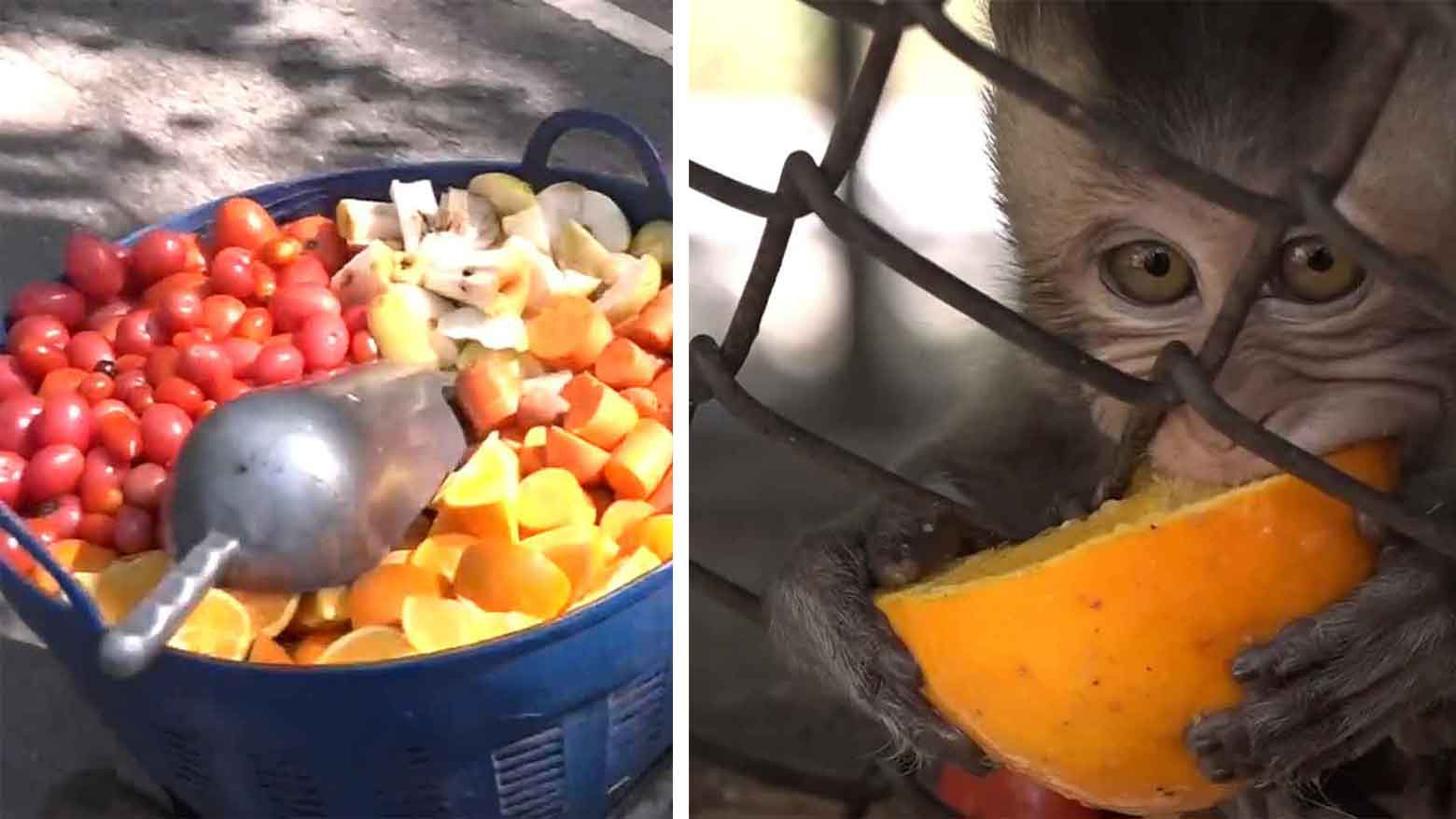Breeding centers suffer
The Phu Khiao wildlife breeding center in Chaiyaphum province breeds endangered species and tries to reintroduce them to the wild. Staff are looking after 1,000 animals, but this year they will have to do it with only 40 percent of their previous budget.
The head of the center, Sompong Boonsanong, says about three quarters of their income goes on animal feed, and he worries about whether they can keep operating.
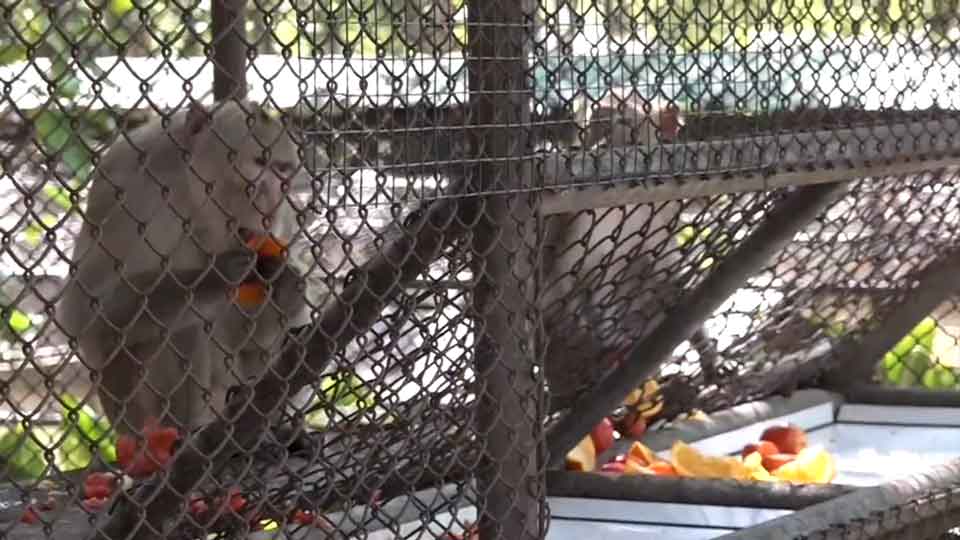
Meals have changed for some of the animals. The tigers rescued from illegal traders used to enjoy whole chickens, but now they have to make do with cheap, less nutritious meat. "I'm worried that it may affect the animals' health in the long term," says Sompong.
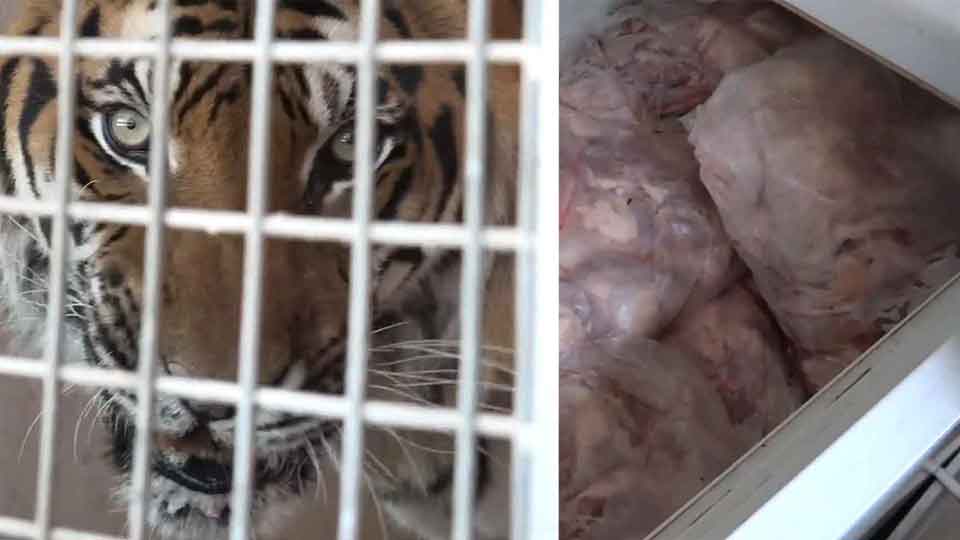
Breeding programs for rare species are also suffering. The center is trying to increase the population of rare birds, especially the endangered green peafowl. It costs money to hatch an egg, so the center is only hatching half the usual number. The rest are being fed to the center's monkeys to save costs. "Sometimes we know that an egg can be hatched, so it's a hard thing to do," says Sompong.
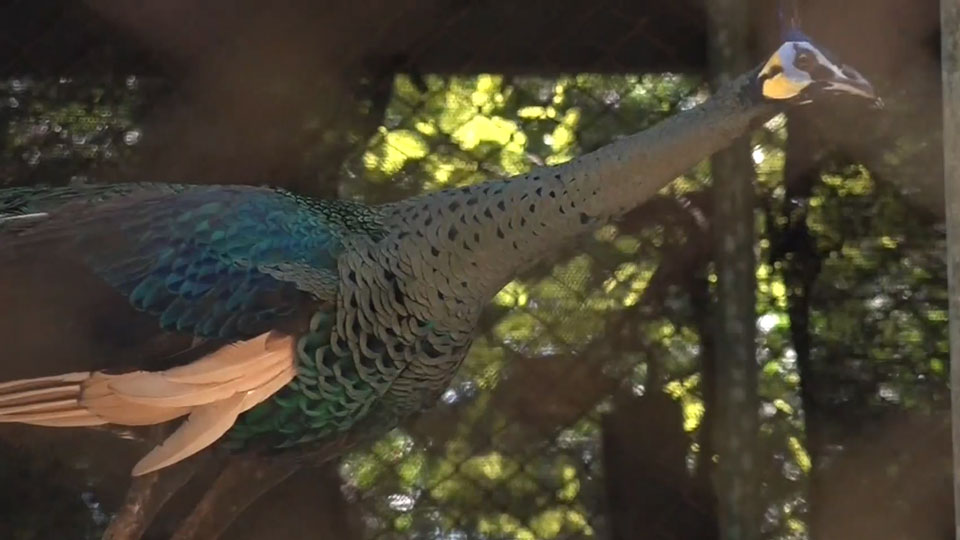
The budget squeeze is affecting the center's breeding program.
Help is at hand
The wildlife centers' work has caught the attention of supermarket chain Makro with the launch of a donation program in February. Unsold food is being sent to breeding centers all over the country.
The Phu Khiao facility now receives 200 kilograms of fruit and vegetables three times a week. Staff clean and check the product before giving it to the animals.
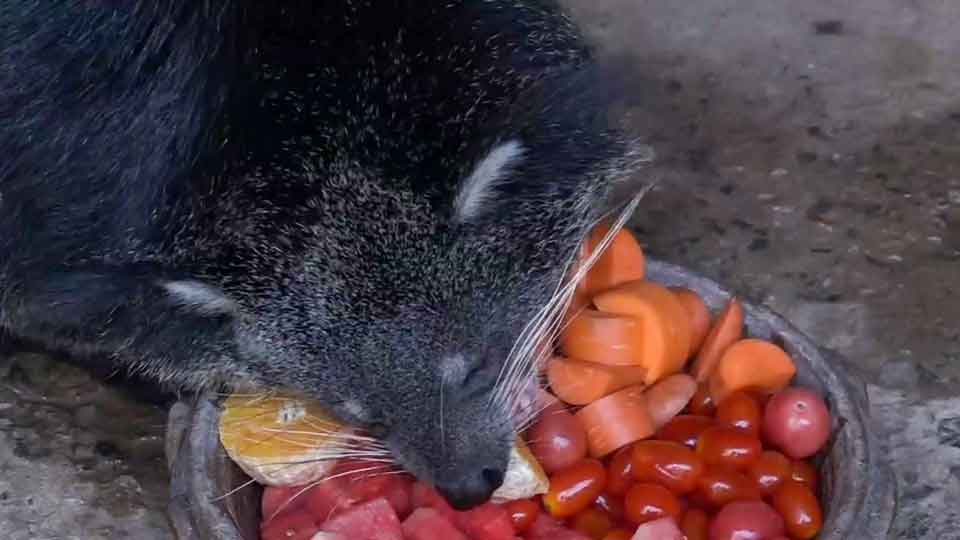
The center's animals enjoy oranges, tomatoes and more.
Sompong says the donations save the center between 10 and 20 percent of its food budget and he believes the animals are enjoying the variety. "Before we could only provide the same food over and over again because of our limited budget. Now, they look very happy because they can eat various kinds of fruit," he says.
The project also helps the supermarket chain that provides the produce. Preeyawadee Pangrungsee, the general manager of one Makro outlet, says they can reduce waste and no longer have to throw out unsold food. "We are happy that we can put it to good use and can help the animals too," says Preeyawadee.
Makro has signed on for one year, and Thailand's wildlife conservation office is expanding the project to include one more supermarket chain. "We are trying our best to compensate for the reduced budget," says office director Phadet Laithong.
Across Thailand there are 27 wildlife centers and all are struggling with the budget squeeze. It is not just food the animals need. Some require special equipment that the centers can no longer afford. "I'm worried it's going to affect the welfare of the animals," says Phadet.
The office is lobbying for more government funds and is promoting a program that allows supporters to sponsor a specific animal.
Times might be tough, but supermarket donations and the adoption program are going some of the way to keeping the animals cared for. "It's our mission to guarantee the welfare of animals under our care. We have to make sure they are living in a pleasant environment," says Phadet.
